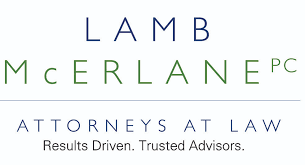Student Loan Repayment Options Under The CARES Act

 By Kelly Jurs
By Kelly Jurs
As we know, COVID-19 has upended almost every aspect of life. Personal financial issues, including those involving student loans, have been no exception. Student loan borrowers throughout the country are asking how recently-passed federal legislation, like the CARES Act, will affect their student loans and/or their repayment obligations.
Fortunately, the CARES Act does provide some temporary relief for student loan borrowers. Borrowers seeking to determine student loan repayment options, however, must first determine whether their loans are private or federally held. Under the CARES Act, qualified private loan borrowers are eligible for up to three months of administrative forbearance upon request. This brings eligible loans current and postpones payments for up to three months.
Interest will still accrue during this time, but the interest will not capitalize, or be added to the unpaid principal balance, at the end of the forbearance period. It is important to note that if the accrued interest is not paid and the borrower uses a different type of forbearance or deferment in the future, the interest could be capitalized at that future time. While no payments are required during the forbearance period, the borrower can always make extra payments to help lower the overall cost of the loan.
There are other programs that may assist the borrower. Some lenders are offering a Rate Reduction Program, which temporarily reduces the interest rate and lowers the monthly payment amount. There are also Interest-Only and Extended Repayment Programs available through certain lenders.
If you have federal loans, the CARES Act makes the following provisions: effective March 13, 2020, the interest rate on all federally held student loans is temporarily reduced to 0% until September 30, 2020. Federal Loan Servicers automatically adjusted accounts so that interest doesn’t accrue. This 0% interest rate change is applicable to all federally-held loans regardless of status; i.e., whether the borrower is in school, in a grace period, or in a period of deferment or forbearance.
Additionally, all borrowers have been automatically placed on administrative forbearance, which means that monthly payments have been suspended. The administrative forbearance is effective from March 13, 2020 through September 30, 2020. A borrower can request that this administrative forbearance be removed at any time to allow required payments to resume.
Direct debit payments are automatically suspended during the administrative forbearance period and any payments that were processed during that period can be refunded. Borrowers still have the option to manually make payments on their loans to reduce their overall balance and payments made during this time can be the full amount or a partial amount. Any amount paid during this time period will be applied directly to principal once interest that accrued prior to March 13th is paid.
Borrowers who were part of the Public Service Loan Forgiveness Program (PSLFP) and the Income-Driven Repayment (IDR) Program or other qualifying repayment plan prior to the implementation of the administrative forbearance, and who work full-time for a qualifying employer during this period, will receive credit toward loan forgiveness for the period of payment suspension as though their regular, on-time monthly payments were made.
Borrowers currently on an IDR plan will have their suspended payments applied toward IDR forgiveness. However, it is important to remember that borrowers on an IDR plan will have to pay income tax on the total amount of loans forgiven. There are no income tax implications for borrowers under the PSLFP.
Borrowers can take control of their student loan debt and optimize their repayment during this administrative forbearance period. Some other options for borrowers to consider exploring during this time are student loan refinancing, student loan consolidation, income-driven repayment plans, and student loan forgiveness programs.
The attorneys at Lamb McErlane PC are here to assist you during this difficult time. For more information, please contact 610-430-8000. www.lambmcerlane.com.
________
 Kelly Jurs is an associate at Lamb McErlane PC. She focuses her practice on compassionate and efficient advocacy specializing in all aspects of pre-nuptial planning, divorce, equitable distribution, child custody, property settlement, and related litigation and mediation of issues. kjurs@lambmcerlane.com. 610.701.3277.
Kelly Jurs is an associate at Lamb McErlane PC. She focuses her practice on compassionate and efficient advocacy specializing in all aspects of pre-nuptial planning, divorce, equitable distribution, child custody, property settlement, and related litigation and mediation of issues. kjurs@lambmcerlane.com. 610.701.3277.
Connect With Your Community
Subscribe to stay informed!
"*" indicates required fields



































![95000-1023_ACJ_BannerAd[1]](https://vista.today/wp-content/uploads/2023/03/95000-1023_ACJ_BannerAd1.jpg)










